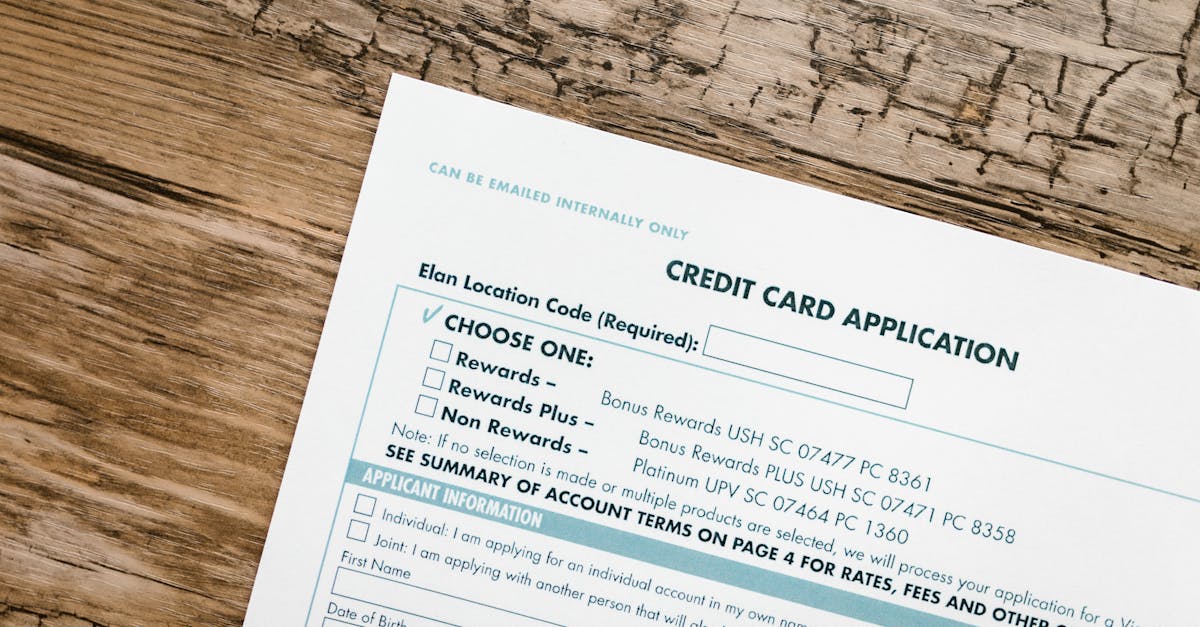What Happens If You Miss an Earnest Loan Payment?
Missing a payment on an Earnest loan can have profound effects on your financial health and credit status. This guide will delve into the potential consequences of missing a payment and offer practical advice on how to handle the situation. While falling behind on payments can feel overwhelming, it's important to remember that there are solutions and strategies available to help you get back on track.
Understanding Earnest Loans
Earnest loans are a type of personal loan known for their flexible terms and competitive interest rates. What makes Earnest distinct is its comprehensive approach to underwriting. Unlike traditional lenders who primarily focus on credit scores, Earnest evaluates a range of factors, including education, earning potential, and savings habits. This holistic view helps tailor loan offers to fit your individual financial situation more accurately.
When you apply for an Earnest loan, you're required to provide detailed information about your financial background and future goals. This transparency allows Earnest to get a complete picture of your finances, leading to loan offers that are better suited to your needs. By considering more than just credit scores, Earnest supports responsible borrowing and helps you access the funds you need with a greater degree of flexibility.
Visit: BUSINESS CREDIT BUILDER - $ Million Business Credit Cards
The Importance of Timely Payments
Maintaining timely payments on an Earnest loan is crucial for several reasons. First and foremost, it reflects your reliability and commitment to fulfilling your financial obligations. Timely payments contribute significantly to building a positive credit history, which can open doors to more favorable loan terms and financial opportunities in the future.
By making payments on time, you demonstrate to lenders that you are responsible and trustworthy. This can result in improved credit scores and enhanced trust from financial institutions, potentially leading to better loan conditions down the line. Consistently meeting your payment deadlines not only strengthens your financial health but also lays a solid foundation for achieving your long-term financial objectives.
Consequences of Missing a Payment
Failing to make a payment on an Earnest loan can have several repercussions. One immediate effect is a drop in your credit score, as payment history is a key component of your credit profile. A missed payment can negatively impact your score, making it more difficult to obtain future credit or loans at favorable rates.
Additionally, missing a payment often incurs late fees and penalties, which increase the overall cost of the loan. Your lender might also report the missed payment to credit bureaus, further damaging your credit standing. It's essential to address missed payments promptly and work with your lender to mitigate further negative effects on your financial health.
Steps to Take If You Can't Make a Payment
If you're struggling to make an Earnest loan payment, the first step is to contact your lender as soon as possible. Ignoring the issue will only exacerbate the problem. Be honest about your financial difficulties and discuss your situation openly with your lender. Many lenders are willing to work with you to find a feasible solution.
Consider reviewing your budget to assess your income and expenses. Look for areas where you can cut costs to free up funds for your loan payment. Additionally, explore opportunities to boost your income, such as taking on extra work or selling unused belongings. Taking these proactive steps can help you navigate financial challenges more effectively.
Communicating with Your Lender
Effective communication with your lender is essential if you miss a payment. Instead of avoiding the issue, reach out to them promptly to explain your circumstances. Discuss the reasons behind the missed payment and express your intention to resolve the situation.
By being transparent and showing a willingness to work towards a solution, you may find that your lender is more accommodating than you expected. They might offer temporary relief options or adjust your repayment schedule to better align with your current financial situation. Clear and honest communication is crucial for managing such challenges smoothly.
Exploring Options for Assistance
If you've missed a payment, it's important to explore available assistance options. Contact your lender to discuss your situation—many lenders offer alternative repayment plans or forbearance options for borrowers facing temporary financial difficulties.
Additionally, seek support from financial counseling services or non-profit organizations specializing in debt management. These resources can provide valuable advice on budgeting, negotiating with lenders, and finding ways to get back on track with your payments. Seeking help is a proactive step toward regaining control of your financial situation.
Rebuilding After a Missed Payment
Recovering from a missed Earnest loan payment can be challenging, but it's entirely possible. Start by reevaluating your financial situation and creating a realistic budget to ensure timely future payments. Consider reducing non-essential expenses and finding ways to increase your income.
Maintain open communication with your lender to develop a plan for getting back on track. You might be able to negotiate a new repayment schedule or explore other options that ease the financial strain. Facing these challenges directly and taking proactive steps can help you rebuild your financial health.
Learning from the Experience
A missed Earnest loan payment can serve as a valuable lesson in financial management. Use this experience to reflect on what went wrong and identify areas for improvement in your budgeting and financial practices. Consider seeking advice from financial advisors or credit counselors to enhance your repayment strategy.
Approach the situation as an opportunity for growth and learning. With determination and a positive mindset, you can overcome financial setbacks and emerge with stronger money habits and greater financial resilience.
Conclusion
In conclusion, missing a payment on an Earnest loan is a setback that can be managed with the right approach. By communicating with your lender, exploring available options, and taking proactive steps, you can navigate through this challenging period. Remember that resilience and informed decision-making can turn a temporary setback into a valuable learning experience.
FAQ: Missing an Earnest Loan Payment
What should I do if I miss a payment on my Earnest loan?
If you miss a payment on your Earnest loan, your first action should be to contact Earnest directly. Explain your situation honestly and promptly. Many lenders offer options for borrowers facing temporary financial difficulties, such as revised repayment plans or forbearance. Addressing the issue early can help prevent further complications and additional fees.
How will a missed payment affect my credit score?
A missed payment can negatively impact your credit score. Payment history is a major factor in credit scoring, and even a single missed payment can lead to a decrease in your credit score. This drop may affect your ability to secure future loans or credit at favorable rates. It’s important to address missed payments quickly to minimize damage.
Are there any fees associated with missing a payment?
Yes, missing a payment can result in late fees or penalties, which will increase the total amount you owe. Additionally, if the missed payment is reported to credit bureaus, it could lead to further financial repercussions. To avoid these costs, make sure to communicate with your lender and address the missed payment as soon as possible.
Can I negotiate my payment terms if I’m struggling financially?
Yes, you can often negotiate your payment terms if you’re experiencing financial hardship. Reach out to your lender to discuss your situation. Many lenders are willing to work with you to create a modified payment plan or provide temporary relief options, such as payment deferment or forbearance, to help you manage your financial challenges.
What options are available if I can’t make my payment?
If you're unable to make your payment, consider the following options:
- Contact Your Lender: Discuss your situation and explore possible adjustments to your repayment plan.
- Budget Review: Analyze your budget to identify areas where you can cut expenses and free up funds.
- Additional Income: Look for ways to increase your income, such as side jobs or selling unused items.
- Financial Counseling: Seek advice from financial counseling services or debt management organizations for personalized guidance and support.
How can I rebuild my financial health after a missed payment?
Rebuilding after a missed payment involves several steps:
- Reevaluate Your Budget: Create a realistic budget to ensure future payments are made on time.
- Cut Expenses: Reduce non-essential spending to allocate more funds toward your loan.
- Increase Income: Explore opportunities to boost your earnings.
- Communicate with Your Lender: Work with them to develop a plan to catch up on missed payments and adjust your repayment schedule if needed.
- Monitor Your Credit: Regularly check your credit report to track improvements and address any inaccuracies.
Can a missed payment be removed from my credit report?
A missed payment will generally remain on your credit report for several years. However, if the payment was recorded in error or if you believe there’s been a mistake, you can dispute it with the credit bureaus. Keeping up with future payments and working to improve your credit score can gradually offset the impact of a missed payment.
What can I learn from experiencing a missed payment?
Experiencing a missed payment can be a valuable learning opportunity. It can highlight the need for better budgeting, financial management, and preparedness for unexpected expenses. Use this experience to improve your financial habits, seek advice from financial professionals, and develop strategies to avoid similar issues in the future.








0 Comments
If you have any doubts please let me know.